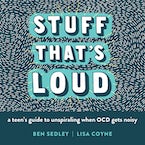Therapist: “How’s your week been?”
Client: “I don’t know.”
Therapist: “How are you feeling right now?”
Client: “Dunno.”
We all have clients that respond to any question we ask in therapy with “don’t know,” or a shrug or silence, and it can make for very frustrating therapy sessions for both therapist and client. Or worse, it can turn sessions into a game of chess where the therapist is trying to get the client to answer questions and the client is trying to find ways to avoid answering them.
So, let’s pause, take a breath, and formulate. Time to ask, “What is the function of this behavior of saying, ‘don’t know?’” And of course, the answer is different for different people. Sometimes I’ll even explicitly ask the client if they’re saying “don’t know” because they don’t know, or because they don’t want to tell me yet, or for some other reason.
Here are a few possible reasons they might be saying, “don’t know,” and what might help.
1. They’re feeling shame or stigma about what they’re struggling with or being in therapy. Meet them with authenticity and compassion, getting to know them as a human being, not a problem to be diagnosed and solved.
2. They’re telling you that they’re not the problem, e.g., they’re acting out because their parents are fighting. Ask them about all their contexts and validate their feelings, especially the ones that aren’t getting heard or validated elsewhere.
3. They want to be there but don’t have the words to describe what they’re feeling. Start slow, do the describing for them, e.g., “I can see your shoulders are slumped, I wonder if you’re feeling down today.”
4. They’re telling you they’re annoyed with you for some reason. Ask about that, apologize or clarify things you’ve said or done as appropriate.
There are other reasons, too, so remember to collaborate, formulate, and above all, care about everyone you see. Our job is hard, and you’ve got this.
Ben Sedley, PhD, is a clinical psychologist and acceptance and commitment therapy (ACT) practitioner with over fifteen years of experience working with adolescents and adults facing mental health difficulties. Sedley’s research and practice has focused on examining children and young people’s understanding of mental health, which has helped guide him on the best ways to explain mental health concepts and ACT to young people. He is author of the teen self-help book, Stuff That Sucks.



 2024 Peace Playbook: 3 Tactics to Avoid Clashes with Your Partner
2024 Peace Playbook: 3 Tactics to Avoid Clashes with Your Partner